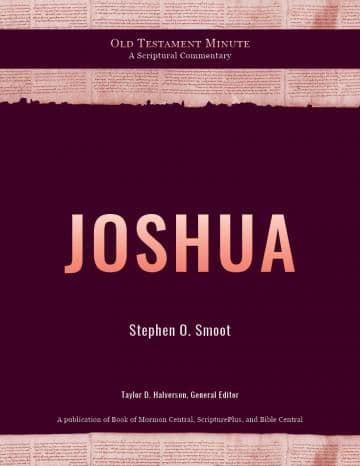Book
24 Chapters

After the destruction of Jericho, the city next targeted by the Israelites was Ai. Already mentioned at Genesis 12:8 and 13:3 in connection with Abraham’s sojourning, Ai (modern et-Tell) means simply “ruin” or “desolation,” not so subtly foreshadowing its fate. It took the children of Israel two attempts to capture Ai, narrated in Joshua 7:2–5 and then in 8:1–29.
The first battle of Ai ended in an Israelite rout, evidently because unknown to Joshua, the “children of Israel committed a trespass in the accursed thing [ḥerem]” (7:1). Specifically, some of the Israelites “have even taken of the accursed thing [ḥerem], and have also stolen, and dissembled also, and they have put it even among their own stuff” (verse 11). Here Achan, the culprit, is introduced. His crime was having coveted and withheld some of the dedicated war booty from the spoils of Jericho (verses 16–26). The penalty was the execution of not only Achan but also his household. The sentence was carried out in the valley of Achor (Hebrew ꜥakhor), which forms a pun both on Achan’s name (ꜥakhan) and on Joshua’s question to the guilty party: “Why hast thou troubled [ꜥkhr] us? the Lord shall trouble [ꜥkhr] thee this day” (verse 25).[1]
The fate of Achan and his family, presumably faithful Israelites, is a somewhat ironic inversion of the fate of Rahab and her family, all Canaanites. The episode heightens the narrative tension by showing even some of the “good guys” can have a bad outcome. It also served as a warning that Joshua was deadly serious about following the Lord’s exact specifications for how to conduct the conquest of Canaan. But why were both Achan and his household put to death? The punishment seems overly harsh to modern readers, but in an ancient mindset it makes some sense. By eliminating Achan and everyone connected to him, the Israelites basically sought to “quarantine” the effects of the violation of the ḥerem in the wider community.
[1] Compare 1 Chronicles 2:7, which identifies Achan as “Achar, the troubler of Israel” (ꜥakhar ꜥokher Yisrael).
Book
24 Chapters
Items in the BMC Archive are made publicly available for non-commercial, private use. Inclusion within the BMC Archive does not imply endorsement. Items do not represent the official views of The Church of Jesus Christ of Latter-day Saints or of Book of Mormon Central.